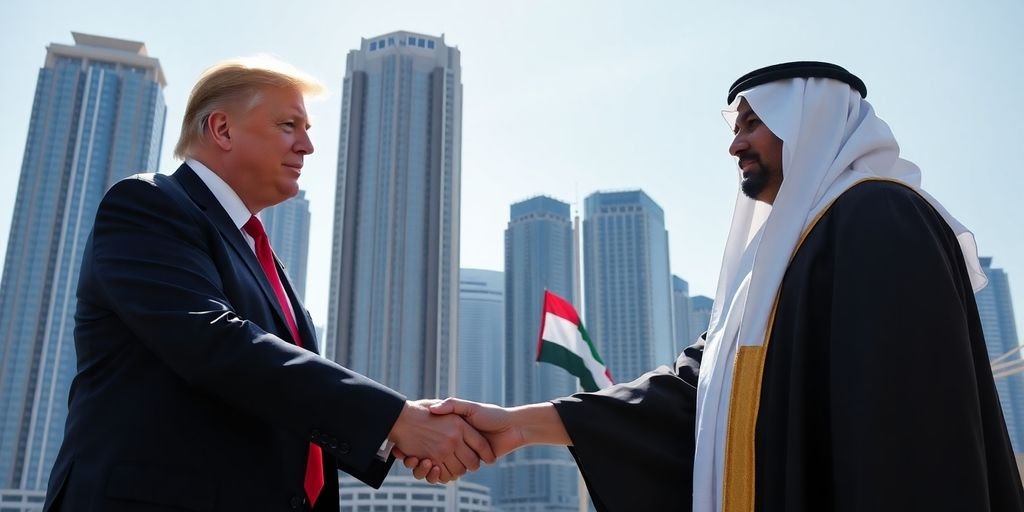President Donald Trump’s recent visits to the UAE have culminated in a series of significant business deals and investment commitments, solidifying economic ties between the two nations. These agreements span various sectors, including energy, technology, and finance, with pledges totaling trillions of dollars.
Trillions in Deals: Fact or Fiction?
- The White House claims over $2 trillion in combined deals were secured during Trump’s Gulf tour. However, a Reuters analysis of specific announced deals totals over $700 billion. Many of these agreements are non-binding memorandums of understanding (MoUs), raising questions about their immediate financial impact.
- During his first term, Trump announced $450 billion in deals with Saudi Arabia, but actual trade and investment flows between 2017 and 2020 amounted to less than $300 billion.
Key Investment Highlights
- Energy Sector: ADNOC secured agreements with U.S. energy companies, potentially facilitating $60 billion in U.S. investments in UAE energy projects. The UAE’s energy investments in the U.S. are projected to reach $440 billion by 2035.
- Technology and AI: The UAE committed to a 10-year, $1.4 trillion investment framework in the U.S., focusing on AI infrastructure, semiconductors, and manufacturing. This includes a partnership between UAE sovereign wealth fund ADQ and Energy Capital Partners for a $25 billion U.S.-focused initiative in energy infrastructure and data centers.
- Aerospace: Qatar Airways placed an order for 160 Boeing jetliners with GE Aerospace engines, valued at $96 billion. Abu Dhabi’s Etihad Airways will spend $14.5 billion to acquire 28 Boeing aircraft with GE engines.
The Trump Family’s Crypto Connection
A United Arab Emirates-backed government fund, MGX, announced a $2 billion purchase of a minority stake in Binance, the world’s largest crypto exchange. This deal will utilize USD1, a cryptocurrency backed by the Trump family’s World Liberty Financial. Donald Trump serves as the company’s "chief crypto advocate," while his sons, Eric Trump and Donald Trump Jr., are "Web3 ambassadors." This arrangement has drawn criticism regarding potential conflicts of interest, though the White House maintains that Trump’s assets are in a trust managed by his children, ensuring no conflicts.
Beyond the Numbers: Strategic Gains
Beyond the financial figures, Trump’s visits have yielded significant strategic benefits for the Gulf nations:
- Saudi Arabia: Moved closer to developing a civil nuclear energy industry, delinked from normalizing relations with Israel.
- UAE: Secured a framework for acquiring advanced semiconductors, supporting its ambition for AI leadership.
- Qatar: Received assurance of U.S. protection in case of attack.
These visits underscore a deepening bilateral relationship, with Gulf states securing U.S. support on key issues and expanding their economic footprint in the American market.
Sources
- What are the Gulf ‘trillions’ that Trump says will boost the US economy?, Reuters.
- UAE-backed firm to use Trump family crypto to buy $2B stake in Binance, New York Post.
- $60 billion in U.S. investments secured by ADNOC during UAE-U.S. business dialogue, Economy Middle East.
- UAE commits to $1.4 trillion US investment, White House says, Reuters.
- Trump’s Middle East business surge prompts conflict of interest attacks from critics, Newsweek.
